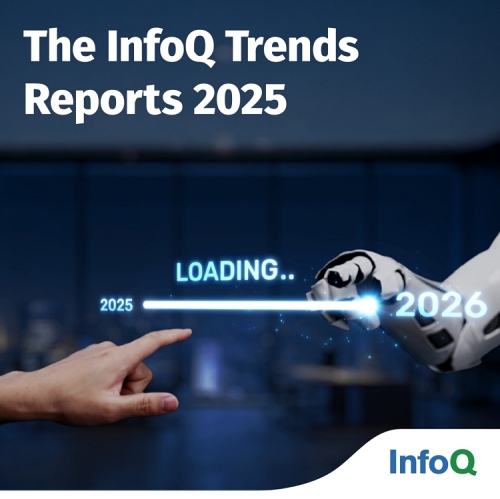Codetown
Codetown ::: a software developer's community
Optimization from Code to Architecture
Event Details
Time: April 28, 2015 from 1pm to 5pm
Location: Online - see URL
Website or Map: http://www.oreilly.com/pub/e/…
Event Type: online
Organized By: O'Reilly
Latest Activity: Apr 27, 2015
Event Description
Whether you're building a new architecture, tweaking your Python unicode, or optimizing your Java for performance, there are ways that you can fine-tune your practices to improve your efficiency and quality of work while reducing errors. O'Reilly's first online conference for software architects focuses on these matters. In four hours, we'll take you from line of code to the big picture, including an introduction to microservices and David McKinley's session "Choose Boring Technology" on making broader business decisions.
Hosted by Rachel Roumeliotis, conference chair for OSCON and the O'Reilly Software Architecture, the event is free, interactive (bring your questions), and worth your time.
Notes
Welcome to Codetown!
 Codetown is a social network. It's got blogs, forums, groups, personal pages and more! You might think of Codetown as a funky camper van with lots of compartments for your stuff and a great multimedia system, too! Best of all, Codetown has room for all of your friends.
Codetown is a social network. It's got blogs, forums, groups, personal pages and more! You might think of Codetown as a funky camper van with lots of compartments for your stuff and a great multimedia system, too! Best of all, Codetown has room for all of your friends.
Created by Michael Levin Dec 18, 2008 at 6:56pm. Last updated by Michael Levin May 4, 2018.
Looking for Jobs or Staff?
Check out the Codetown Jobs group.
InfoQ Reading List
Inside the Development Workflow of Claude Code's Creator

Claude Code's creator Boris Cherny described how he uses it at Anthropic, highlighting practices such as running parallel instances, sharing learnings, automating prompting, and rigorously verifying results to compound productivity over time.
By Sergio De SimoneNVIDIA Releases Open Models, Datasets, and Tools Across AI, Robotics, and Autonomous Driving

NVIDIA has released a set of open models, datasets, and development tools covering language, agentic systems, robotics, autonomous driving, and biomedical research. The update expands several existing NVIDIA model families and makes accompanying training data and reference implementations available through GitHub, Hugging Face, and NVIDIA’s developer platforms.
By Robert KrzaczyńskiMongoBleed Vulnerability Allows Attackers to Read Data From MongoDB's Heap Memory

MongoDB recently patched CVE-2025-14847, a vulnerability affecting multiple supported and legacy MongoDB Server versions. According to the disclosure, the flaw can be exploited remotely by unauthenticated attackers with low complexity, potentially leading to the exfiltration of sensitive data and credentials.
By Renato LosioPresentation: Fast Eventual Consistency: Inside Corrosion, the Distributed System Powering Fly.io

Somtochi Onyekwere explains the architecture of Corrosion, a distributed system designed for low-latency state replication. She shares how Fly.io transitioned from Consul to a gossip-based SQLite solution to handle global machine data. By discussing CRDTs, the SWIM protocol, and QUIC, she shares how to build resilient systems that prioritize speed while managing the complexities of CAP theorem.
By Somtochi OnyekwereMini book: The InfoQ Trends Reports 2025 eMag

This special edition of The InfoQ eMag, contains a comprehensive collection of our popular InfoQ Trends Reports from 2025, a year with both evolution and revolution within the landscapes of technology, software development trends. This collection does not just reflect the past year's technological trends. We aspire to use it as a guide for future exploration and innovation.
By InfoQ
© 2026 Created by Michael Levin.
Powered by
![]()
RSVP for Optimization from Code to Architecture to add comments!
Join Codetown